Understanding the Value of Preventive Dental Care
Preventive dental care serves as the cornerstone of maintaining not only a healthy smile but also overall well-being. By focusing on early detection, consistent care, and proactive habits, individuals can avoid complex dental treatments, reduce emergency visits, and significantly cut down on healthcare costs. This article explores the multifaceted benefits of preventive dentistry and offers insights into strategies that promote long-term oral health.
The Benefits of Preventive Dental Care: Saving Time, Money, and Avoiding Emergencies
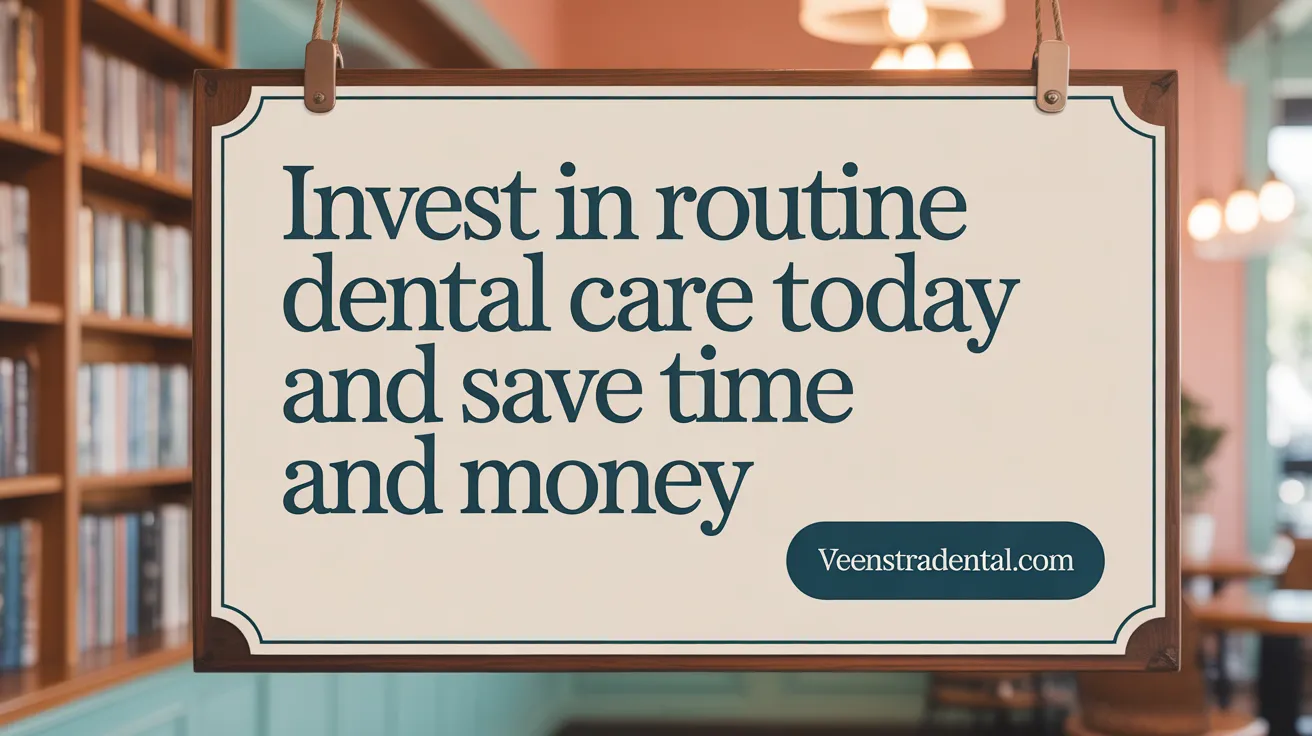
What are the benefits of preventive dental care in saving time, money, and preventing emergencies?
Preventive dental care provides vital advantages by catching potential problems early before they develop into more serious and costly conditions. Regular dental visits—including cleanings, exams, and X-rays—help identify issues like cavities, gum disease, and even oral cancer in their initial stages, which are easier and less expensive to treat.
Maintaining good oral hygiene at home—such as brushing twice daily, flossing, and eating a balanced diet—complements routine checkups. These habits significantly reduce the likelihood of dental emergencies, such as severe infections or tooth loss, which often require complex procedures like root canals or extractions.
Early detection and treatment not only minimize discomfort but also save time and money. When issues are addressed early, treatments tend to be minimal, avoiding lengthy restorative procedures and reducing the need for emergency room visits.
Furthermore, preventive care plays a crucial role in lowering healthcare costs over a lifetime. Studies show that for each dollar invested in prevention, there can be savings of between $8 and $50 in later restorative and emergency treatments.
Access to affordable preventive services like sealants, fluoride treatments, and comprehensive exams helps bridge oral health disparities, especially in underserved communities.
Overall, prioritizing preventive dentistry safeguards oral health and function, reduces the risk of costly emergencies, and promotes overall well-being, making it an essential investment for long-term health and quality of life.
The Critical Role of Early and Regular Dental Checkups
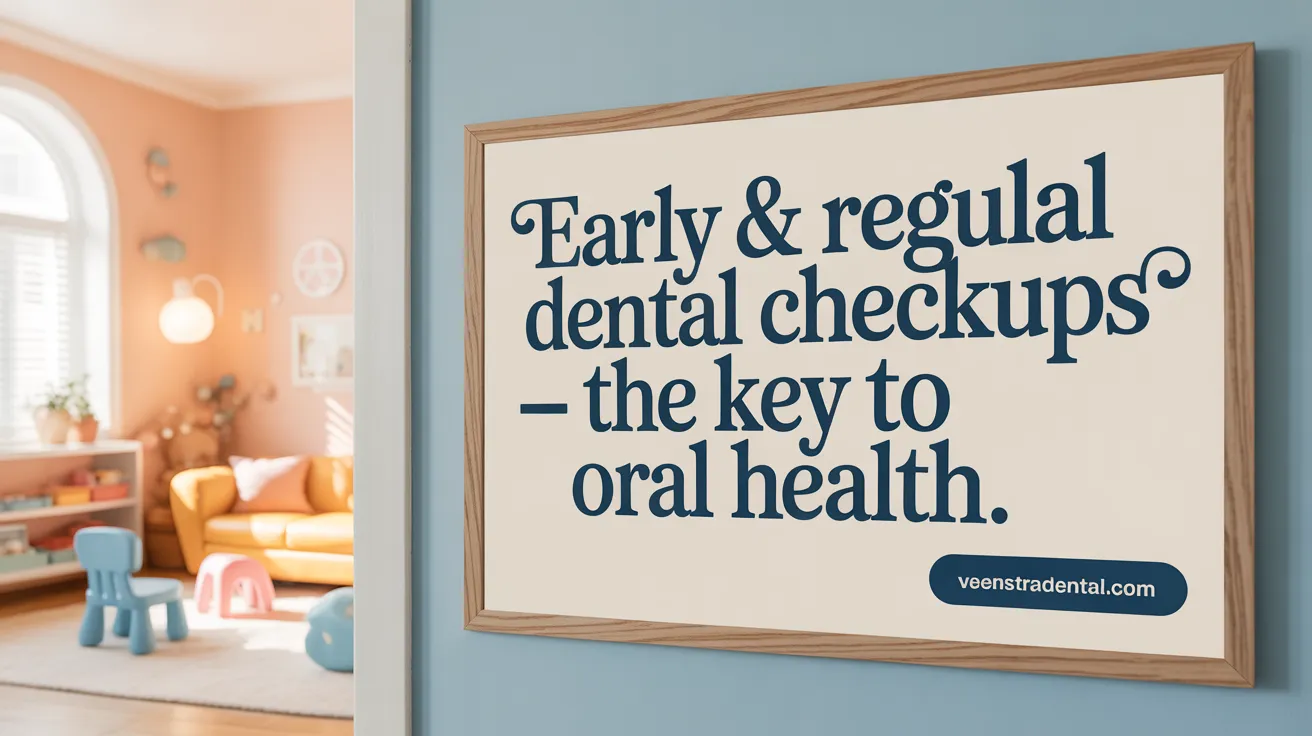
Why are early and regular dental checkups important?
Regular dental visits play a crucial role in maintaining oral health throughout life. These appointments enable dental professionals to detect small problems such as early cavities, gum inflammation, or signs of oral cancer before they develop into serious issues. Finding and treating issues early often involves less invasive procedures, saving patients time and money.
During a routine checkup, dentists perform professional cleanings that remove plaque and tartar buildup, which are primary causes of tooth decay and gum disease. These cleanings are essential in preventing the progression of common dental conditions. With consistent visits—recommended at least twice a year—patients benefit from personalized guidance on better oral hygiene practices, such as effective brushing, flossing, and dietary habits.
Additionally, regular checkups serve as an opportunity for systemic health screening. Dental health is linked with overall health, with conditions like diabetes and heart disease often showing early signs in the mouth. Early detection of such conditions through dental exams can lead to timely medical intervention, improving overall health outcomes.
In sum, early and routine dental checkups are a simple yet powerful strategy to preserve natural teeth, avoid costly treatments, and support overall well-being. They help set the foundation for a lifetime of healthy smiles and prevent the escalation of preventable dental problems.
Long-Term Advantages of Preventive Measures Like Dental Sealants
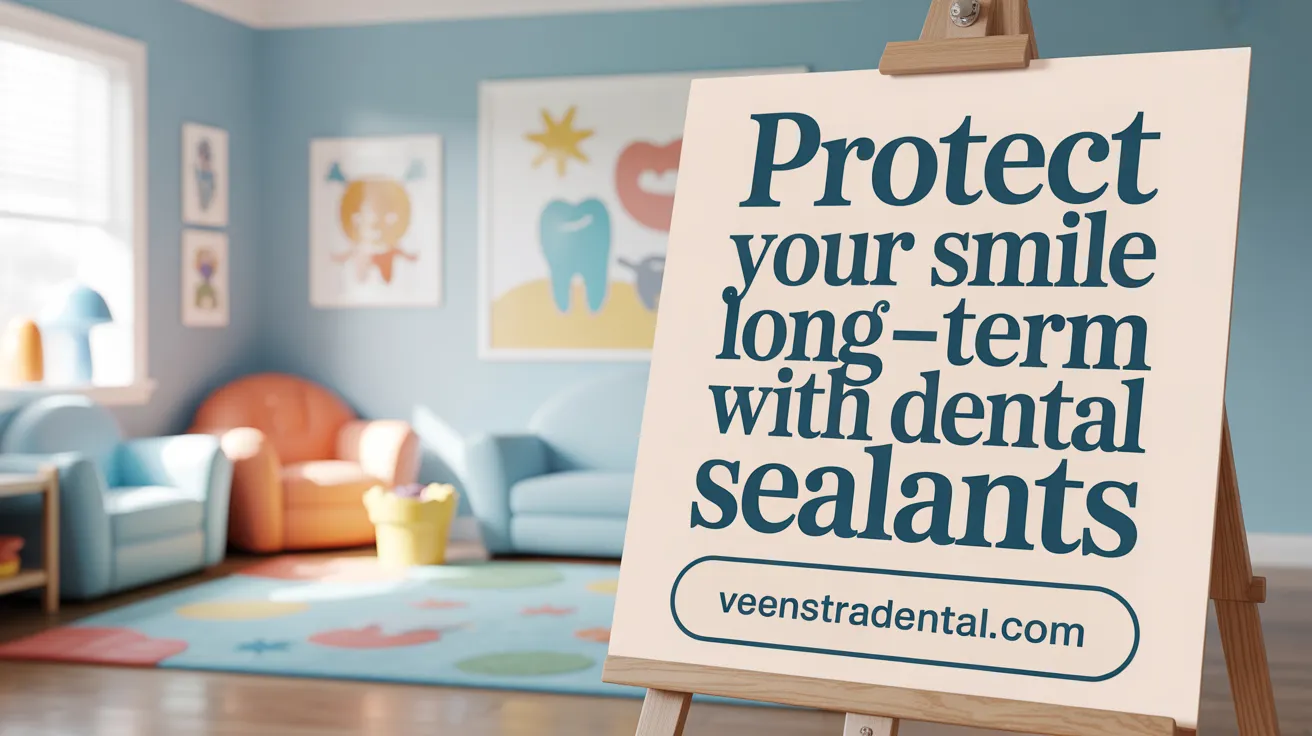
What preventive measures, such as dental sealants, offer long-term advantages?
Dental sealants are among the most effective preventive tools used in dentistry. They act as a protective shield that covers the deep grooves and pits of molars, which are common spots for cavities to develop. When applied early—usually soon after the molars erupt—they greatly reduce the risk of decay.
The advantages of sealants extend far into the future. They can prevent up to 80% of cavities during the first two years after application. Their protective effect can last for four years or longer with proper care, helping children and adults avoid the need for costly restorative treatments.
Applying sealants is a quick, painless process that safe for patients of all ages. Dental professionals typically place the sealants during routine checkups. Since the procedure involves no drilling or anesthesia, patients can eat and drink normally right after.
To ensure optimal protection, regular dental visits are crucial. Dentists can check the integrity of the sealants and determine if any need reapplication. Overall, sealants are a cost-effective and proven preventive measure. They play a vital role in maintaining oral health, especially in vulnerable areas prone to decay, and can significantly reduce the need for future dental interventions.
How Preventive Dentistry Reduces Emergency Treatments and Costs
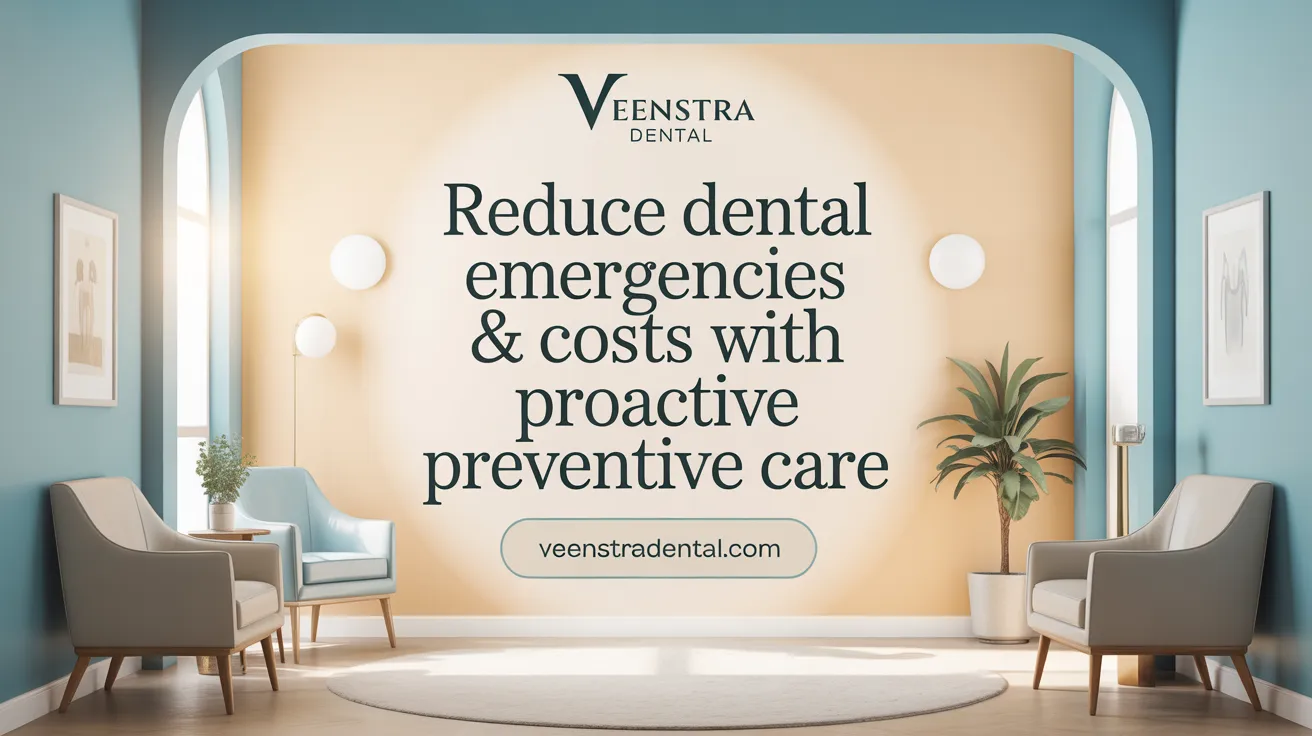
How does preventive dental care reduce the need for emergency treatments?
Preventive dental care plays a vital role in decreasing the frequency of emergency dental visits by catching issues early before they cause significant pain or damage. Regular checkups, cleanings, and screenings help identify small cavities, gum inflammation, or early signs of oral cancer early on. When these problems are treated promptly, they are less likely to escalate into serious, painful conditions that require urgent attention.
Studies reveal that individuals who engage in routine preventive visits are less dependent on costly, emergency-based care. For instance, treatments like dental sealants significantly cut down cavity formation; children with sealants have almost three times fewer cavities than those without. These measures effectively lower the incidence of dental emergencies caused by infections or severe decay.
Preventive strategies also include fluoride applications and patient education, which strengthen teeth and promote better oral hygiene habits. Such proactive management reduces the likelihood of problems that demand urgent treatment, thereby decreasing reliance on emergency departments, which are often ill-equipped for definitive dental care and are associated with high costs.
Overall, investing in preventive dental services leads not only to healthier mouths but also to substantial savings by minimizing the need for extensive and urgent procedures. This approach improves long-term dental outcomes and reduces the socioeconomic burden caused by preventable dental emergencies.
Cost-Effectiveness of Preventive Dentistry and Financial Savings
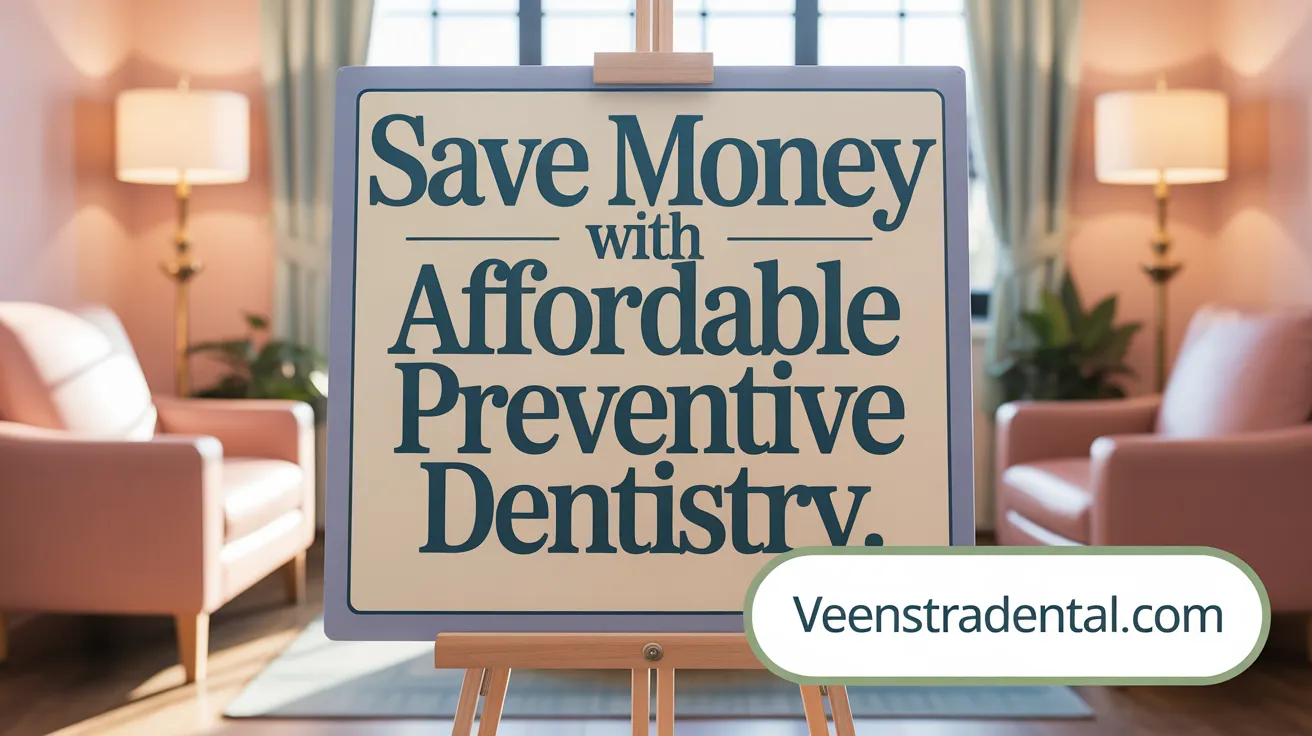
How is preventive dentistry cost-effective and what financial savings does it offer?
Preventive dentistry proves to be highly cost-effective by reducing the need for complex and costly dental treatments later on. When issues like cavities, gum disease, or oral infections are caught early through routine checkups, simple and less expensive procedures such as fillings or cleanings can be performed. This approach prevents the progression of dental problems into more serious ailments that require invasive procedures like root canals, crowns, or extractions, which are significantly more costly.
Community-wide strategies like water fluoridation have demonstrated economic value, often being cost-saving or highly cost-effective. These programs help diminish the incidence of dental decay on a large scale, reducing the financial burden of treating widespread dental diseases.
Targeted prevention, guided by individual caries risk assessments, also offers substantial economic benefits. It enables health providers to focus resources on those at higher risk, effectively lowering the overall cost per QALY (quality-adjusted life year) gained. For example, programs like 'Into the Mouths of Babies' deliver preventive services within medical settings, which have shown to be cost-effective and even cost-saving by decreasing hospital visits for dental decay among children.
Studies reveal that for every dollar spent on preventive dental care, between $8 and $50 can be saved in future restorative and emergency treatments. This clear return on investment underscores the importance of integrating preventive measures into routine healthcare. Moreover, early interventions can help preserve natural teeth and avoid expensive treatments like implants or extensive restorations.
In summary, investing in routine preventive dental care benefits individuals by reducing out-of-pocket expenses and improving long-term oral health. It also alleviates financial pressures on healthcare systems by decreasing the demand for costly emergency and restorative procedures, ultimately contributing to healthier populations and more efficient use of resources.
Effective Strategies and Education for Maintaining Dental Health
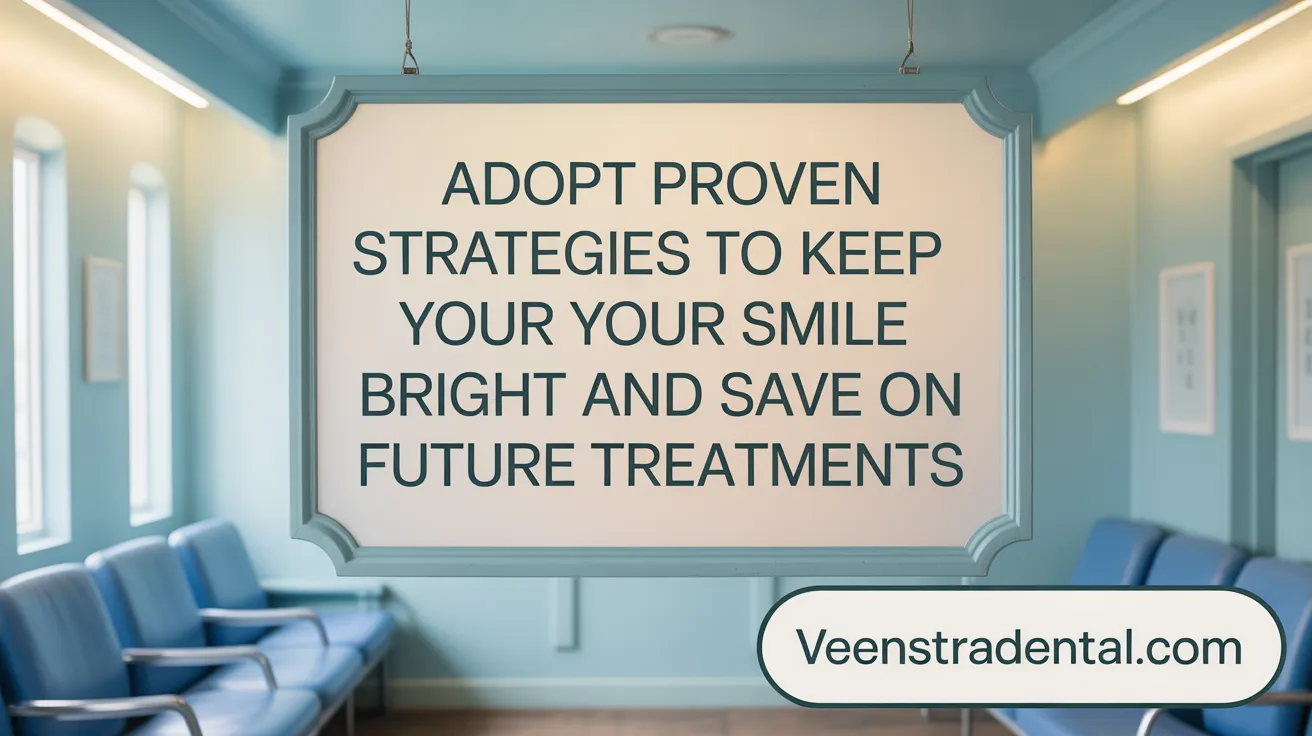
What strategies are effective for maintaining dental health to avoid costly and urgent dental issues?
Maintaining good dental health involves several effective strategies that can prevent the need for costly and urgent procedures. Consistent oral hygiene is fundamental; brushing twice daily with fluoride toothpaste and flossing regularly help remove plaque and prevent decay. Using mouthwash adds an extra layer of protection by reducing bacteria. Regular dental visits, at least twice a year, are essential for early detection and treatment of problems like cavities and gum disease, which can escalate if left untreated.
Avoiding harmful habits like chewing on hard objects, using teeth as tools, smoking, and neglecting oral care can prevent injuries and additional issues. Eating a healthy diet low in sugary and acidic foods and high in calcium, fruits, and vegetables strengthens teeth and diminishes decay. Protective gear such as mouthguards during sports activities shields teeth from injury.
Addressing minor dental issues promptly and practicing these habits consistently help preserve dental health, ultimately saving time and money by reducing emergencies and invasive treatments.
Why is education on the significance of preventive practices important for dental health?
Educating individuals about preventive dental practices is crucial for fostering lifelong healthy habits. Education programs, especially those targeting children, help instill the importance of proper brushing, flossing, and routine dental checkups early on. Well-informed patients are more likely to maintain regular visits, adopt healthier diets, and avoid risky behaviors that lead to dental damage.
During dental appointments, patient education enhances understanding about the benefits of preventive care, such as the use of sealants, fluoride treatments, and protective mouthguards. This awareness encourages proactive behavior and treatment compliance.
In summary, preventive education reduces the prevalence of dental diseases, lowers healthcare costs, and promotes overall well-being by emphasizing early intervention and healthy habits. It empowers individuals of all ages to take control of their oral health, leading to better health outcomes and increased self-confidence.
| Strategy | Beneficial Effect | Additional Notes |
|---|---|---|
| Regular brushing & flossing | Removes plaque, prevents cavities and gum disease | Recommended twice daily |
| Dental checkups | Early detection and treatment of oral issues | At least twice a year |
| Healthy diet | Reduces decay risk, strengthens teeth | Low sugar, high calcium foods |
| Protective gear | Prevents injury during sports or grinding | Use mouthguards when needed |
| Patient education | Improves hygiene habits, treatment compliance | Conducted during dental visits |
Taking Charge of Your Oral Health for a Better Tomorrow
Investing in preventive dental care is more than just preserving a bright smile; it’s a smart strategy that saves time, money, and protects against disruptive dental emergencies. By embracing early and regular dental visits, applying effective preventive treatments like sealants, and maintaining consistent at-home care coupled with education, individuals can safeguard their oral and systemic health. These measures not only reduce costly interventions and emergency visits but enhance overall quality of life and productivity. Prioritizing prevention today paves the way for healthier teeth, fewer dental complications, and lasting financial benefits tomorrow.
References
- The Value of Preventive Oral Health Care | College of Dentistry
- Why Preventative Dentistry Saves You Time and Money
- 5 Reasons Preventative Dentistry Saves Time and Money
- How Preventive Dentistry Saves Time and Money
- Why You Should Prioritize Preventive Care
- The High Cost of Neglect: Why Preventative Dental Care is ...
- Can Preventive Dental Care Really Save You Money ...
- How Preventive Dentistry Saves You Time and Money
- How Regular Checkups Can Prevent Dental Emergencies
